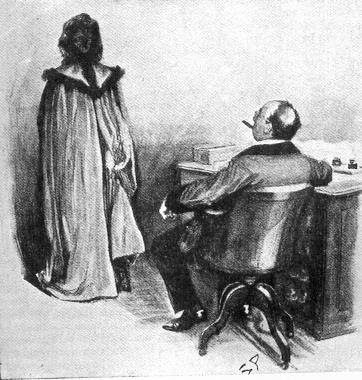 |
| The murder of Milverton: Holmes compounded a felony as usual |
Same old, same old isn’t always bad. Sometimes it’s just
what we want.
“The Adventure of the Three Gables” contains many lines that
are painful to read. But one quote that always makes me smile is Sherlock Holmes
saying, “Well, well, I suppose I shall have to compound a felony as usual.”
This is a wry acknowledgment that Holmes often puts himself
above the law by breaking it and/or giving a pass to someone else who does. It
happens again and again. That was one of the numerous plot tropes from the
Canon that I listed in an article in the Summer 2018 Baker Street Journal.
Others included:
- The current case which has its roots in the soil of another country many years earlier, often being a killing for revenge or to silence a blackmailer;
- Holmes employing a disguise, an alias, a false pretense, or a pretended illness to fool the villain – and/or Watson;
- A wedding that fails to come off because of death, scandal, or estrangement;
- Holmes assigning Watson a task, then unexpectedly showing up to sharply criticize his friend’s lack of perfection in carrying it out;
- Holmes and Watson observing a long vigil, often in the dark;
- A woman missing or otherwise in danger, along with numerous other elements of the Gothic romance in the spooky spirit of Mrs. Radcliffe.
For me, the
familiarity of these plot engines isn’t a negative; it lets me know I’m home.
That may not be true of all mystery series, but I think it characterizes many
of the greatest. Consider, for example, the devices repeated by two premier mystery
writers of the 20th century:
Nero Wolfe: The unusual
murder method, the “charade” to expose the killer, the use of a newspaper ad or
a planted story (often part of a ruse) to generate a break in the case.
Ellery Queen: The dying clue, the
brilliant solution followed by the real solution, the adult siblings and
other family members living near each other in the same house or a compound of
houses, the Iago-like killer behind the killer, the nursery rhyme theme.
Conan Doyle, Queen,
and Stout were each active for about 40 years. As a mystery writer myself, I am
awed that they so successfully reworked familiar themes in various combinations
over four decades to create different stories in their own unique styles.
No comments:
Post a Comment